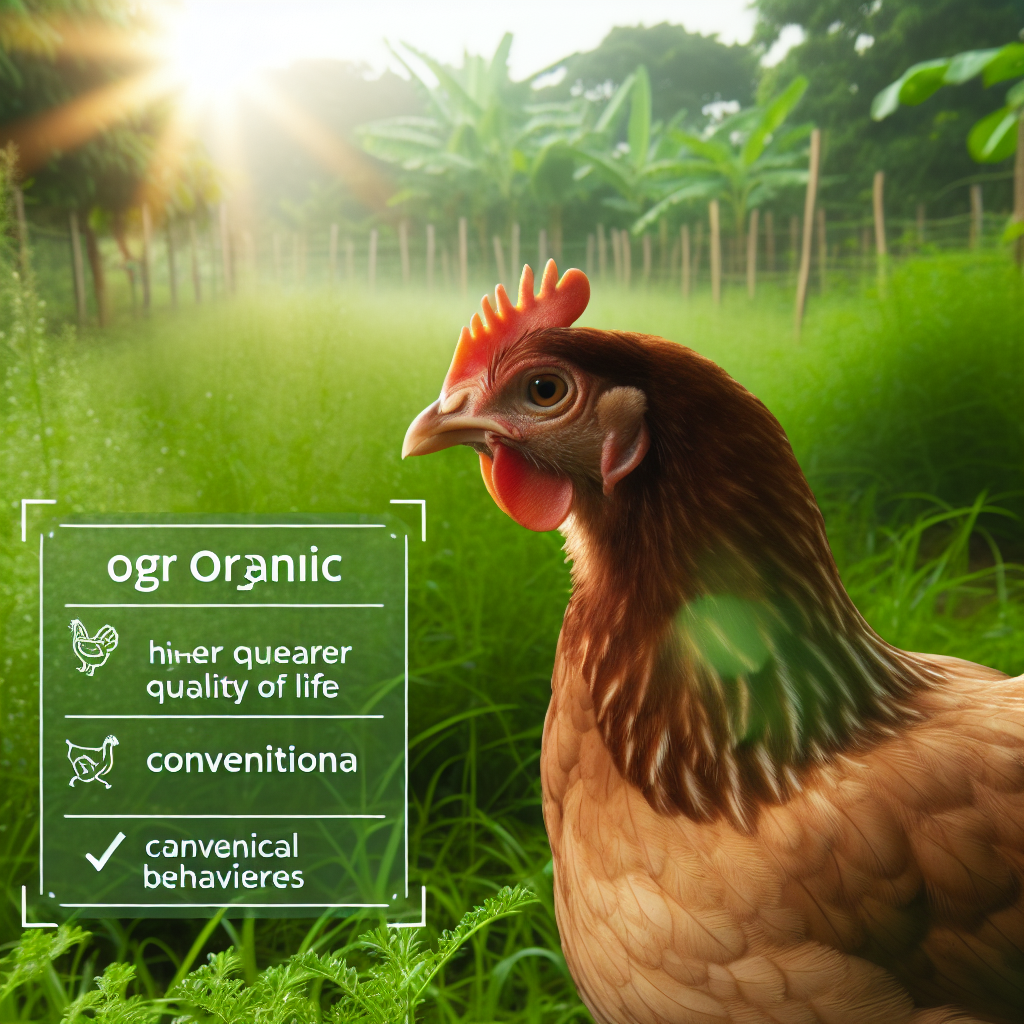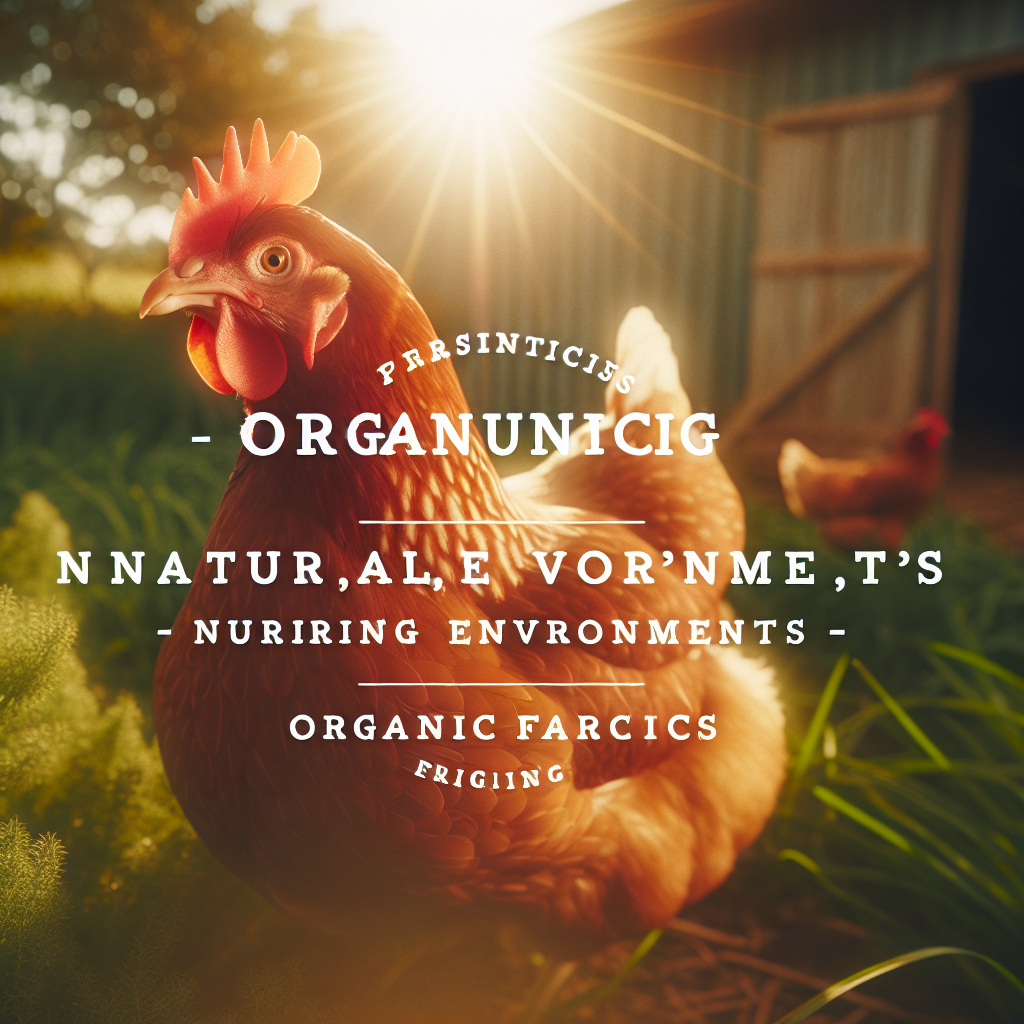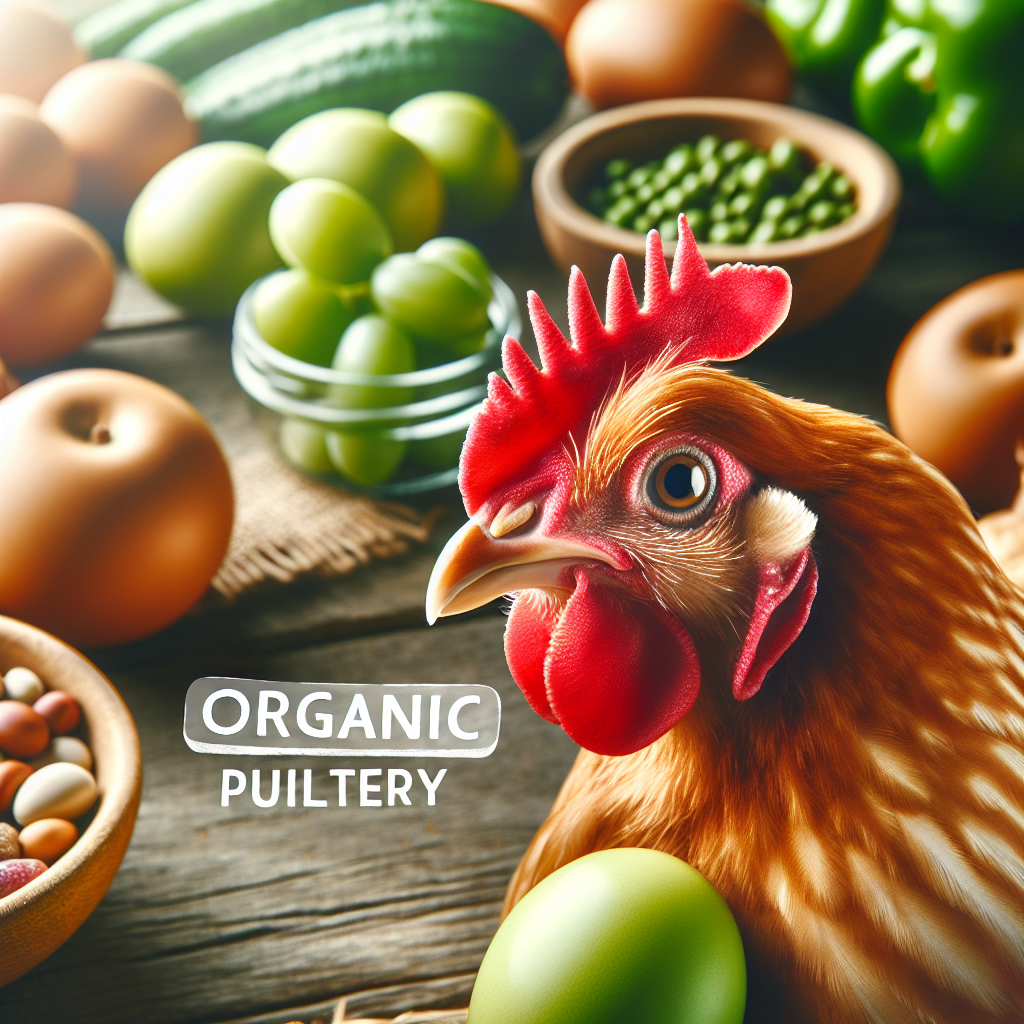In the world of organic poultry farming, it’s important to be aware of the legal considerations and regulations that govern this specific industry. From ensuring the birds have access to outdoor areas to meeting strict labeling requirements, there are various rules in place to maintain the integrity and transparency of organic poultry products. By understanding these legalities, you can navigate the landscape of organic poultry farming with confidence and ensure that your operation meets all the necessary standards.
Labeling and Certification
Requirements for organic labeling
In order for a poultry product to be labeled as organic, it must meet certain requirements. These requirements include the use of organic feed, access to the outdoors for the poultry, and the prohibition of antibiotics and growth hormones. Additionally, the product must be certified by a recognized organic certifying body.
Certification process for organic poultry products
The certification process for organic poultry products involves several steps. First, the farmer or producer must submit an application to a recognized organic certifying body. This application will include detailed information about the farm or facility, including the types of poultry being raised, the feed being used, and the management practices.
Once the application is submitted, the certifying body will conduct an inspection of the farm or facility. This inspection will assess whether the farm or facility meets the organic standards and regulations. If the farm or facility meets the requirements, it will be granted organic certification.
Organic Standards
Definition of organic poultry farming
Organic poultry farming refers to a system of raising poultry that emphasizes the use of natural and sustainable practices. This includes providing the poultry with access to the outdoors, using organic feed, and avoiding the use of antibiotics and growth hormones.
Specific requirements for organic poultry production
There are specific requirements that must be met for organic poultry production. These include providing the poultry with access to the outdoors, using organic feed that is free from genetically modified organisms (GMOs), and preventing the use of synthetic substances in the production process.
Use of synthetic substances and prohibited substances
Organic poultry production prohibits the use of synthetic substances in the rearing process. This includes synthetic pesticides, fertilizers, and medications. Additionally, certain substances are specifically prohibited in organic poultry production, such as antibiotics and growth hormones.
Food Safety Regulations
Preventing contamination and cross-contamination
Food safety regulations for organic poultry production emphasize the importance of preventing contamination and cross-contamination. This includes implementing effective sanitation procedures, ensuring proper cleaning and disinfection of equipment and facilities, and maintaining appropriate hygiene practices.
Sanitary practices and proper waste management
Sanitary practices are crucial in organic poultry production to ensure the safety of the poultry products. This includes proper waste management, including the disposal of manure and other waste materials in a manner that prevents environmental contamination and maintains the health of the poultry.
Guidelines for handling and storage of organic poultry products
Proper handling and storage of organic poultry products are essential to maintain their quality and safety. Guidelines for handling and storage include proper temperature control, minimizing exposure to contaminants, and ensuring proper packaging and labeling to prevent cross-contamination.
Animal Welfare
Ethical treatment and care of organic poultry
Animal welfare is a fundamental aspect of organic poultry farming. Organic standards require that poultry be treated ethically and with care. This includes providing suitable living conditions, adequate nutrition, and access to clean water, as well as avoiding practices that cause unnecessary stress or harm to the poultry.
Minimum space requirements and housing conditions
Organic poultry farming sets minimum space requirements for the housing of poultry. This ensures that the poultry have enough room to move around freely and exhibit natural behaviors. Additionally, the housing conditions must provide ample ventilation, natural light, and the ability for the poultry to exhibit natural behaviors.
Access to outdoor areas and natural light
Organic poultry farming mandates that poultry have access to outdoor areas. This allows the poultry to engage in natural behaviors, such as dust bathing and foraging. Natural light is also crucial for the well-being of the poultry and is required in organic poultry farming.
Health and Medications
Prohibition of antibiotics and growth hormones
One of the key principles of organic poultry farming is the prohibition of antibiotics and growth hormones. This means that organic poultry farmers cannot use antibiotics as a preventive measure or to promote growth. Instead, alternative treatments and preventive measures, such as a healthy diet and good sanitation practices, are utilized.
Use of alternative treatments and preventive measures
Organic poultry farmers employ alternative treatments and preventive measures to maintain the health of the poultry. This includes the use of natural remedies, such as herbal supplements and probiotics, as well as ensuring a clean and sanitary environment.
Requirements for disease management and vaccinations
Organic poultry farming requires effective disease management strategies to prevent and control diseases. This includes regular monitoring, prompt identification of potential health issues, and appropriate intervention methods. Vaccination is allowed in organic poultry farming, but it should be done in a manner consistent with organic standards.
Record Keeping
Documentation of organic farming practices
Record keeping is essential in organic poultry farming to provide transparency and traceability. Farmers are required to maintain detailed records of their farming practices, including the use of organic feed, access to outdoor areas, and any treatments or medications administered to the poultry.
Traceability and transparency in the supply chain
To maintain traceability and transparency in the organic poultry supply chain, each farmer or producer must keep records of their practices. This includes documentation of the origin of feed sources, the transportation of poultry, and any processing or handling of the poultry products.
Maintaining records of feed sources and animal health
Organic poultry farmers must maintain records of their feed sources to ensure compliance with organic standards. This includes keeping records of the types of feed and the origin of the feed ingredients. Additionally, farmers must also maintain records of animal health, including any treatments administered and the results of health assessments.
Environmental Regulations
Protection of soil, water, and air quality
Organic poultry farming places a strong emphasis on environmental stewardship. Farmers must implement practices that protect soil, water, and air quality. This includes minimizing the use of synthetic chemicals, implementing erosion control measures, and managing waste in an environmentally responsible manner.
Sustainable waste management and composting
Organic poultry farming promotes sustainable waste management practices, including composting of poultry manure. Proper composting helps to further reduce the environmental impact of poultry farming by turning waste into a valuable resource for soil fertility and reducing the risk of nutrient runoff.
Preservation of biodiversity and habitat conservation
Organic poultry farming recognizes the importance of preserving biodiversity and habitat conservation. Farmers are encouraged to implement practices that support wildlife habitats, such as providing natural vegetation and maintaining natural ecosystems on their farms. This helps to create a sustainable and harmonious environment for both the poultry and surrounding wildlife.
Inspections and Compliance
Frequency and process of organic inspections
Organic poultry farms are subject to regular inspections to ensure compliance with organic standards. The frequency of inspections may vary but is typically conducted at least once a year. During these inspections, certifying bodies assess the farm’s practices, record keeping, and adherence to organic regulations.
Compliance with organic standards and regulations
Compliance with organic standards and regulations is crucial for organic poultry farms. Farmers must adhere to the specific requirements outlined by certifying bodies and comply with the regulations governing organic poultry farming. This includes record keeping, sourcing organic feed, providing appropriate living conditions for the poultry, and avoiding the use of prohibited substances.
Consequences of non-compliance or fraud
The consequences of non-compliance or fraud in organic poultry farming can be severe. Non-compliance can result in the loss of organic certification, financial penalties, and damage to the reputation of the farm or producer. In cases of intentional fraud, legal action may be taken, leading to further penalties and potential criminal charges.
Import and Export Regulations
Import requirements for organic poultry products
Importing organic poultry products requires compliance with specific import requirements. These requirements typically include documentation proving the organic certification of the products, as well as adherence to the organic standards of the importing country. This ensures that the imported products meet the same standards as domestically produced organic poultry goods.
Certification and documentation for export
When exporting organic poultry products, certification and documentation are necessary to meet the requirements of the importing country. This includes providing proof of organic certification, detailed records of farming practices, and any additional documentation or labeling required by the importing country.
Harmonization of organic standards for international trade
To facilitate international trade of organic poultry products, there are efforts to harmonize organic standards. Harmonization helps to create a more consistent and streamlined process for exporters and importers, as well as ensuring the integrity and authenticity of organic products across different countries and regions.
Marketing and Advertising
Claims and statements permitted on organic poultry products
Marketing and advertising of organic poultry products must adhere to certain guidelines. Permitted claims and statements on organic poultry products may include “certified organic,” “raised without antibiotics,” and “free range.” These claims must be truthful, accurate, and in compliance with the organic standards and regulations.
Prohibition of misleading or false advertising
Misleading or false advertising is strictly prohibited in the marketing of organic poultry products. It is important to provide consumers with accurate information about the organic production methods used and the quality of the products. Any claims or statements made in marketing materials must be substantiated and verifiable.
Approval process for organic product labels
The approval process for organic product labels involves review and verification by the appropriate certifying body. Labels must accurately represent the organic certification and comply with the organic standards. It is important to obtain approval before using the organic label to ensure compliance and maintain consumer trust.
In conclusion, organic poultry farming is subject to a range of legal considerations and regulations. These regulations ensure that organic poultry products meet specific requirements related to labeling, certification, food safety, animal welfare, health, and medications, record keeping, environmental protection, inspections, and compliance, as well as import and export regulations. Marketers and producers must also adhere to guidelines for marketing and advertising organic poultry products, including the use of truthful and verifiable claims. By following these regulations, organic poultry farmers can provide consumers with high-quality products that are produced using sustainable and ethical practices.




